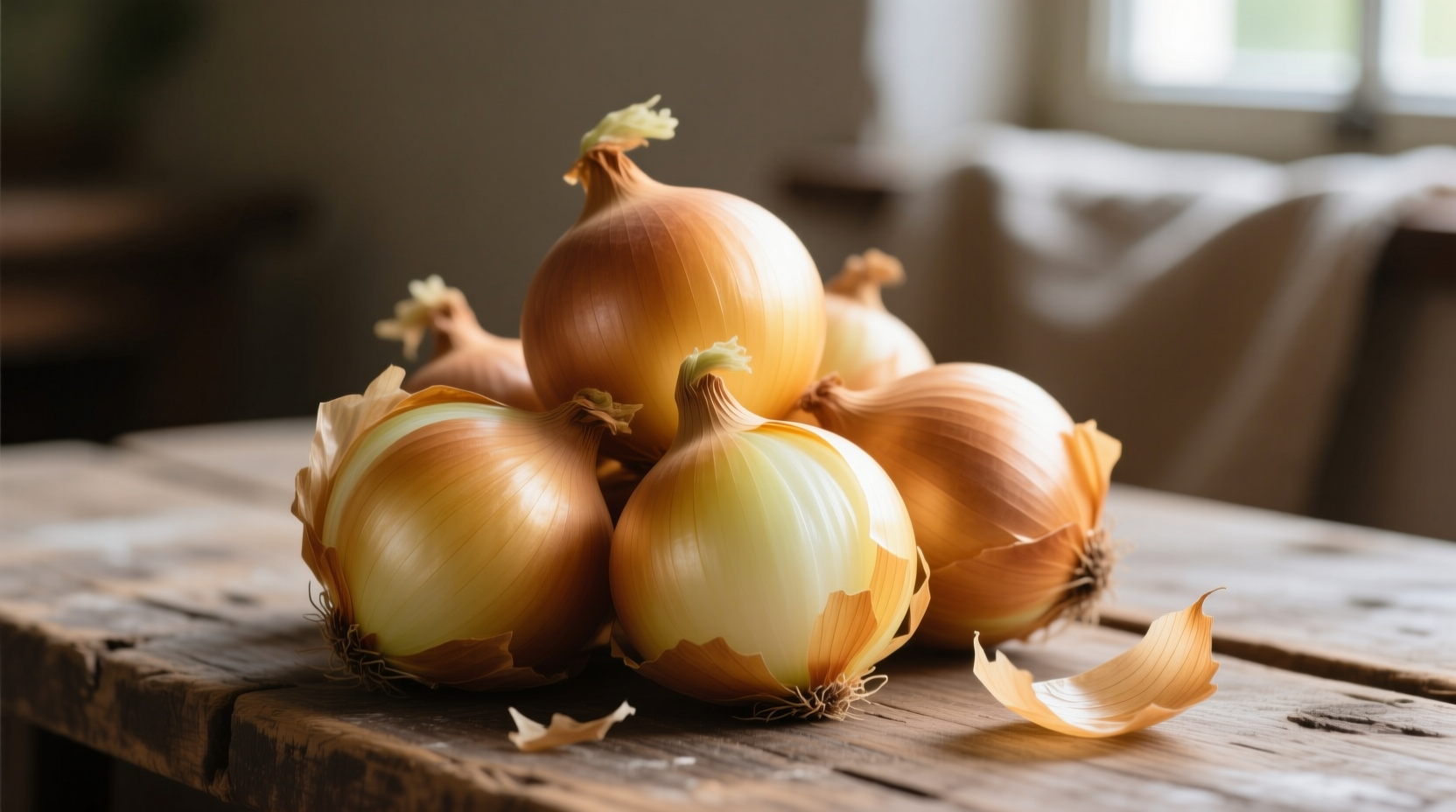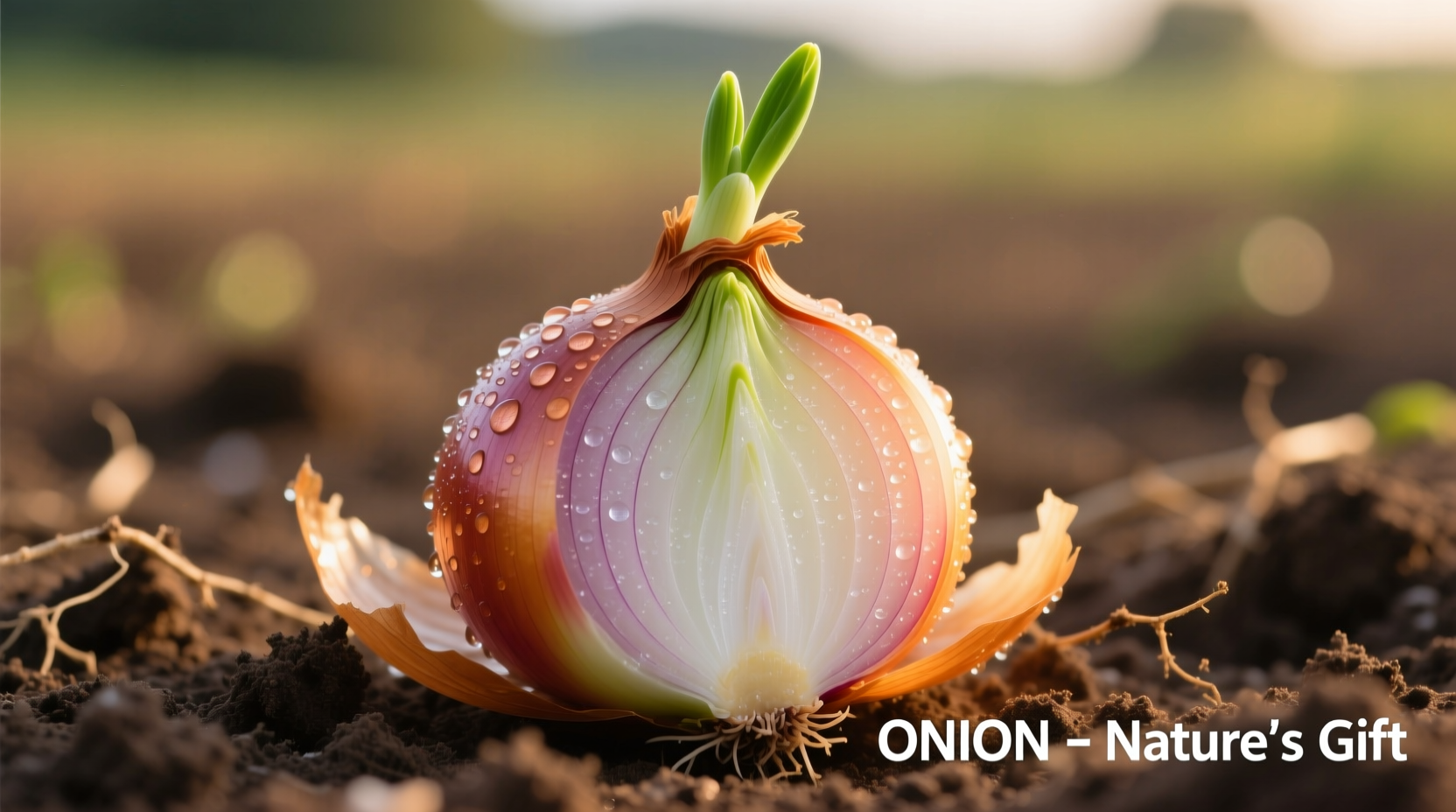Ever found yourself puzzling over whether that onion in your kitchen is technically a fruit or vegetable? You're not alone. This common confusion stems from mixed signals in how we categorize produce. As a chef who's worked with ingredients at both molecular and practical levels, I can clarify this once and for all: onions are unequivocally vegetables in both scientific and culinary contexts. Understanding this distinction helps you make better cooking decisions, from proper storage to optimal flavor extraction.
Why This Classification Matters for Home Cooks
Knowing whether an ingredient is a fruit or vegetable isn't just academic—it directly impacts how you handle, store, and cook with it. Onions behave like vegetables in every practical sense: they don't contain seeds, they're harvested from the plant's bulb rather than its reproductive structures, and they lack the sugar content typical of fruits. This classification affects everything from when to add them in cooking sequences to how long they'll stay fresh in your pantry.
Botanical Breakdown: What Makes a Vegetable?
From a plant biology perspective, vegetables encompass any edible part of a plant that isn't involved in reproduction. Fruits, by definition, develop from the flower and contain seeds. Onions grow as modified underground stems called bulbs, storing energy for the plant rather than housing seeds. The actual seeds of the onion plant develop in the flower head that appears if you let your onion bolt—a process home gardeners often prevent to maintain bulb quality.
| Characteristic | Fruits | Vegetables |
|---|---|---|
| Botanical Origin | Develop from flower | Stems, roots, leaves |
| Seed Content | Contain seeds | No seeds in edible part |
| Sugar Content | Generally higher | Generally lower |
| Onion Classification | Does not apply | Bulb vegetable |
Common Misconceptions Explained
Many people confuse onions with fruits because some vegetables like tomatoes and cucumbers are botanically fruits but culinarily treated as vegetables. However, onions don't fall into this category. According to the USDA's Agricultural Research Service, onions belong to the Allium genus and are classified as bulb vegetables, distinct from fruiting plants. The confusion often arises from inconsistent terminology between scientific and everyday language.
The American Society of Plant Biologists confirms that true fruits always develop from the ovary of a flower and contain seeds. Since the edible part of an onion is a modified stem structure storing nutrients for the plant's survival—not reproduction—it clearly qualifies as a vegetable. This distinction becomes particularly important when considering crop rotation practices in gardening or understanding proper storage conditions.

Culinary Implications of Proper Classification
Professional kitchens rely on accurate ingredient classification to optimize cooking techniques. Onions' vegetable status means they behave differently in recipes than fruits would. Their low sugar content (compared to fruits) and high sulfur compounds create unique flavor development when cooked. When sautéed, onions undergo the Maillard reaction rather than caramelization like fruits do, producing that characteristic savory-sweet flavor profile essential to so many dishes.
Understanding onions as vegetables also informs proper storage. Unlike many fruits that continue ripening after harvest, onions (like most vegetables) should be stored in cool, dry conditions to prevent sprouting. The National Onion Association recommends storing onions at 45-55°F with low humidity—conditions that would spoil most fruits but keep onions fresh for months.
Practical Tips for Cooking with Onions
Now that you know onions are vegetables, here's how to leverage this knowledge:
- Layering flavors: Start with onions when building flavor bases since their vegetable nature means they need time to develop sweetness
- Storage wisdom: Keep onions away from potatoes (which emit ethylene gas that makes onions sprout)
- Cutting technique: Cut across the grain for more pungent applications, with the grain for milder results
- Substitution awareness: Don't replace onions with fruits in recipes—they serve fundamentally different culinary functions
Why Some People Get Confused
The fruit-vegetable confusion often stems from historical classification systems. In the 1893 Nix v. Hedden Supreme Court case, tomatoes were legally classified as vegetables for tariff purposes despite being botanically fruits. This legal distinction sometimes gets misapplied to onions, but unlike tomatoes, onions have no botanical claim to fruit status. The University of California's Agriculture and Natural Resources department clarifies that while some vegetables develop from flower parts (like broccoli), onions develop from stem tissue, placing them firmly in the vegetable category.
FAQs About Onion Classification
Are onions technically fruits because they grow underground?
No, underground growth doesn't determine fruit status. Fruits must contain seeds and develop from flowers. Onions are modified stems (bulbs) that store energy for the plant, making them vegetables regardless of growing location.
Why do some people think onions are fruits?
This confusion often comes from misapplying the tomato situation (botanically a fruit but culinarily a vegetable) to onions. Unlike tomatoes, onions have no botanical claim to fruit status since they don't develop from flowers or contain seeds in their edible portion.
Do onions produce fruit?
Yes, but not the edible part we consume. If left to flower, onion plants produce seed heads that are technically fruits containing seeds. The bulb we eat remains a vegetable regardless of the plant's reproductive cycle.
How does onion classification affect cooking?
As vegetables, onions behave differently than fruits in cooking. They undergo Maillard browning rather than caramelization, require different storage conditions, and serve as flavor foundations rather than sweet components in most recipes.











 浙公网安备
33010002000092号
浙公网安备
33010002000092号 浙B2-20120091-4
浙B2-20120091-4